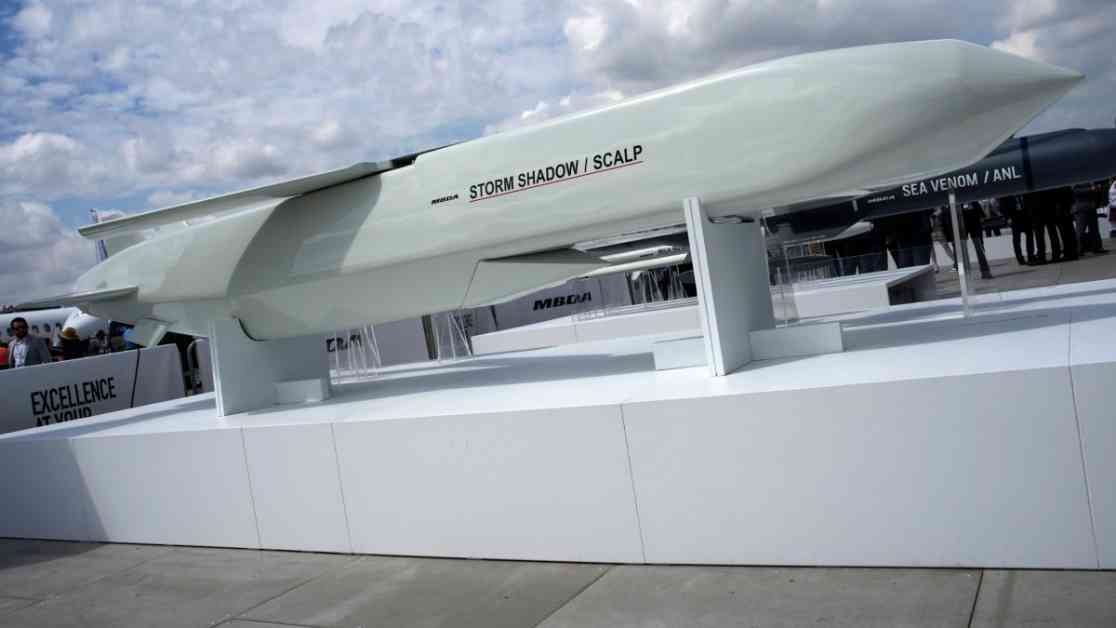British military chiefs have voiced their support for Ukraine’s use of long-range missiles in Russian territory, despite warnings from Russian President Vladimir Putin that such actions could escalate tensions to a state of war. Ukraine has been requesting permission from the UK and US to utilize Western-supplied long-range missiles, including UK-made Storm Shadow missiles, in Russia. Talks between Prime Minister Boris Johnson, US President Joe Biden, and Ukrainian President Volodymyr Zelensky are ongoing, with a decision pending on whether Ukraine will be permitted to use the missiles.
Support from UK Military Chiefs
Senior military officials have advocated for Ukraine to be allowed to use long-range missiles against Russian targets without restrictions. Lord Dannatt, former head of the British Army, emphasized the importance of supporting Ukraine in utilizing UK Storm Shadow missiles to target legitimate Russian military sites such as airbases, logistic depots, and command centers. He stressed the need to assist Ukraine in gaining an advantage on the battlefield, not only for the benefit of Kyiv but also for the security of Western Europe.
Increased Defence Spending
In light of escalating global tensions, Lord Dannatt called for an increase in defense spending to 3% of GDP, surpassing the current commitment of 2.2%. He argued that a rise to 3% would provide the necessary funding to address the challenges posed by the current geopolitical climate. Additionally, Lord West, former head of the Royal Navy, echoed the sentiment that the UK should allow Ukraine to use long-range missiles to defend itself effectively against Russian aggression, making the conflict more costly for Putin and potentially leading to a ceasefire and peace agreement.
Risks and Considerations
However, concerns have been raised regarding the potential consequences of permitting Ukraine to use long-range missiles in Russia. Neta Crawford, an international relations expert at the University of Oxford, warned that such escalation could result in Russian retaliation against Ukrainian civilians. She emphasized the importance of avoiding actions that may inadvertently harm innocent civilians and exacerbate the conflict. Despite these risks, Ukrainian President Volodymyr Zelensky has called on Western leaders to show decisiveness in supporting Ukraine’s defense against Russian military attacks.
Mr. Putin has cautioned against allowing Ukraine to use long-range missiles in Russian territory, stating that it would fundamentally alter the nature of the conflict and potentially lead to a full-scale war involving NATO countries, the US, and European nations against Russia. As discussions continue at the UN General Assembly and other international forums, the UK government has refrained from making a definitive decision on Ukraine’s request, citing the need for strategic deliberation and coordination with allied nations.
Foreign Secretary David Lammy emphasized the importance of careful consideration and consultation with allies before making a decision on Ukraine’s use of long-range missiles. He highlighted the ongoing dialogue between key stakeholders and the need to approach the situation with caution to prevent inadvertently escalating tensions with Russia. As the situation unfolds, diplomatic efforts continue to navigate the complexities of the conflict and address the humanitarian crisis unfolding in Ukraine.
Overall, the debate over Ukraine’s use of long-range missiles underscores the complexities and challenges of the conflict in Eastern Europe. While there is a clear desire to support Ukraine in defending itself against Russian aggression, careful consideration must be given to the potential consequences and risks involved in escalating the conflict further. As diplomatic efforts and negotiations continue, the international community must work together to find a peaceful resolution to the crisis and uphold the principles of sovereignty and security for all nations involved.













